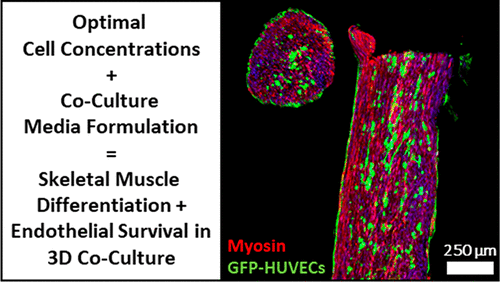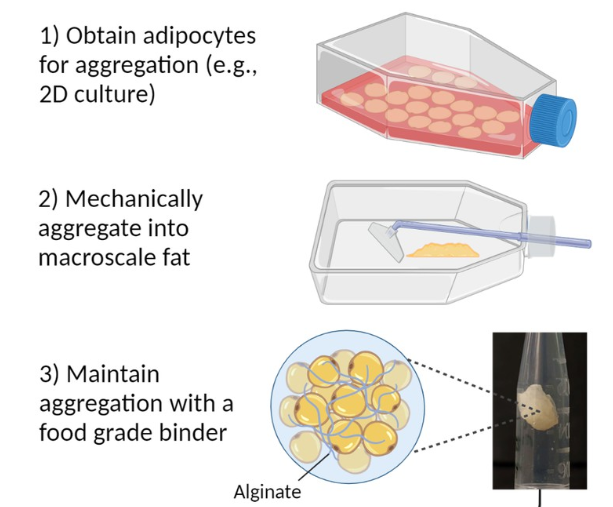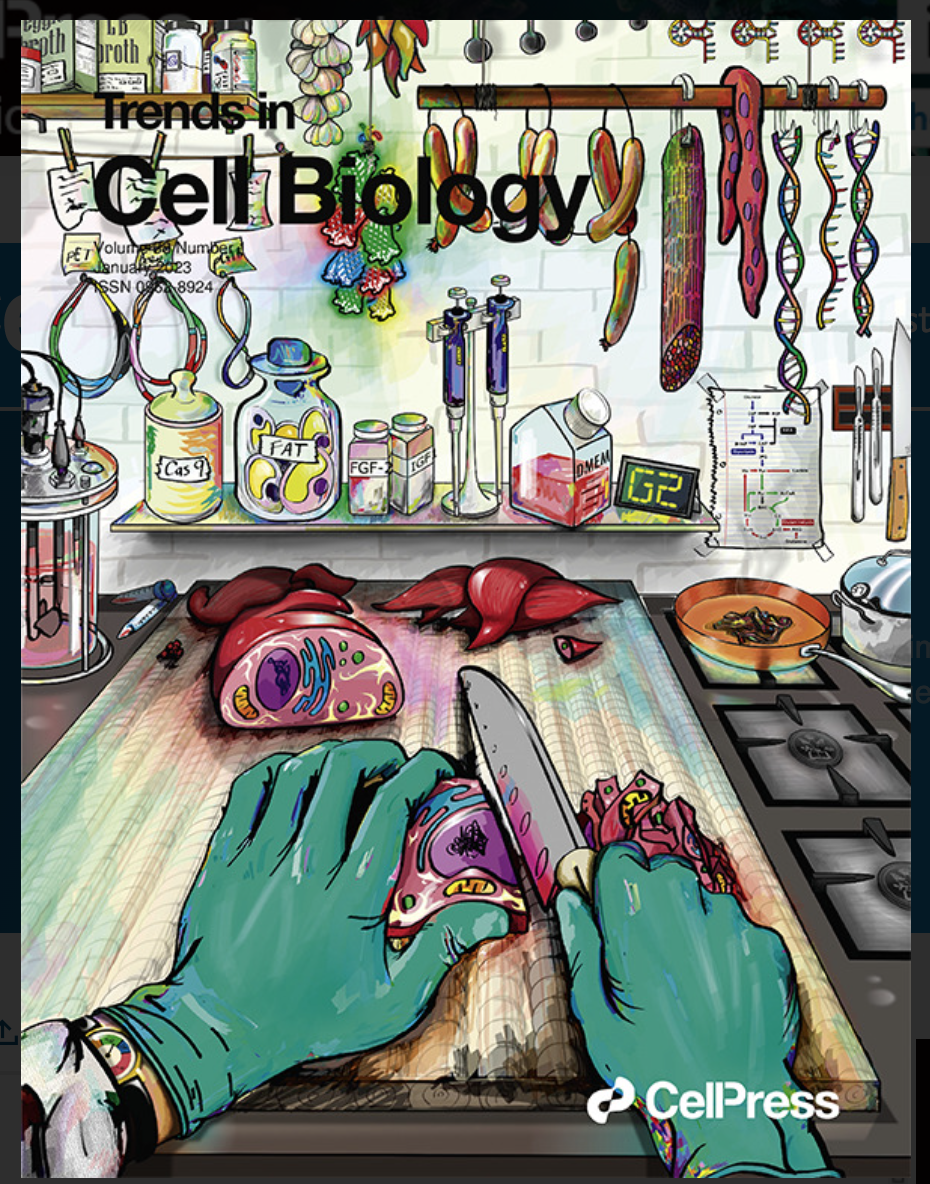- Overview
- Summary
- Funding
- Cite This Publication
Overview
Who: Andrew J. Stout, Miles J. Arnett, Kristin Chai, Tina Guo, Lishu Liao, Addison B. Mirliani, Miriam L. Rittenberg, Michelle Shub, Eugene C. White, John S. K. Yuen Jr., Xiaoli Zhang, and David L. Kaplan
Published: May 5, 2023
Where: ACS Synthetic Biology
Key Takeaway: A new immortalized bovine satellite cell line
Research Topics:
Summary
Andrew Stout et al have created an immortalized bovine satellite cell line (iBSC) that can be used for cultured meat. The authors use genetic engineering to instruct the cells to increase the production of two proteins, telomerase reverse transcriptase (TERT) and Cyclin dependent kinase 4 (CDK4), which increase the cells’ ability to grow for an extended period of time. The study shows that standard BSCs go into a state of limited growth, known as senescence, in ~30-45 doublings, whereas iBSC cells can grow for over 120 doublings with rapid growth. However, the authors find that iBSC have a reduced ability to differentiate into mature muscle, requiring further study.
Need access to the article? Reach out and the authors will be more than happy to share a copy.
Cite This Publication
Stout, A. J., Arnett, M. J., Chai, K., Guo, T., Liao, L., Mirliani, A. B., ... & Kaplan, D. L. (2023). Immortalized bovine satellite cells for cultured meat applications. ACS Synthetic Biology, 12(5), 1567-1573.
You Might Also Like...

Optimization of Culture Media and Cell Ratios for 3D In Vitro Skeletal Muscle Tissues with Endothelial Cells
John SK Yuen Jr., Brigid M Barrick, Hailey DiCindio, Jaymie A Pietropinto, and David L Kaplan

Aggregating in vitro-grown adipocytes to produce macroscale cell-cultured fat tissue with tunable lipid compositions for food applications
John Se Kit Yuen Jr, Michael K Saad, Ning Xiang, Brigid M Barrick, Hailey DiCindio, Chunmei Li, Sabrina W Zhang, Miriam Rittenberg, Emily T Lew, Kevin Lin Zhang, Glenn Leung, Jaymie A Pietropinto, David L Kaplan

Cultured meat: creative solutions for a cell biological problem
Andrew J. Stout, David L. Kaplan, and Joshua E. Flack



